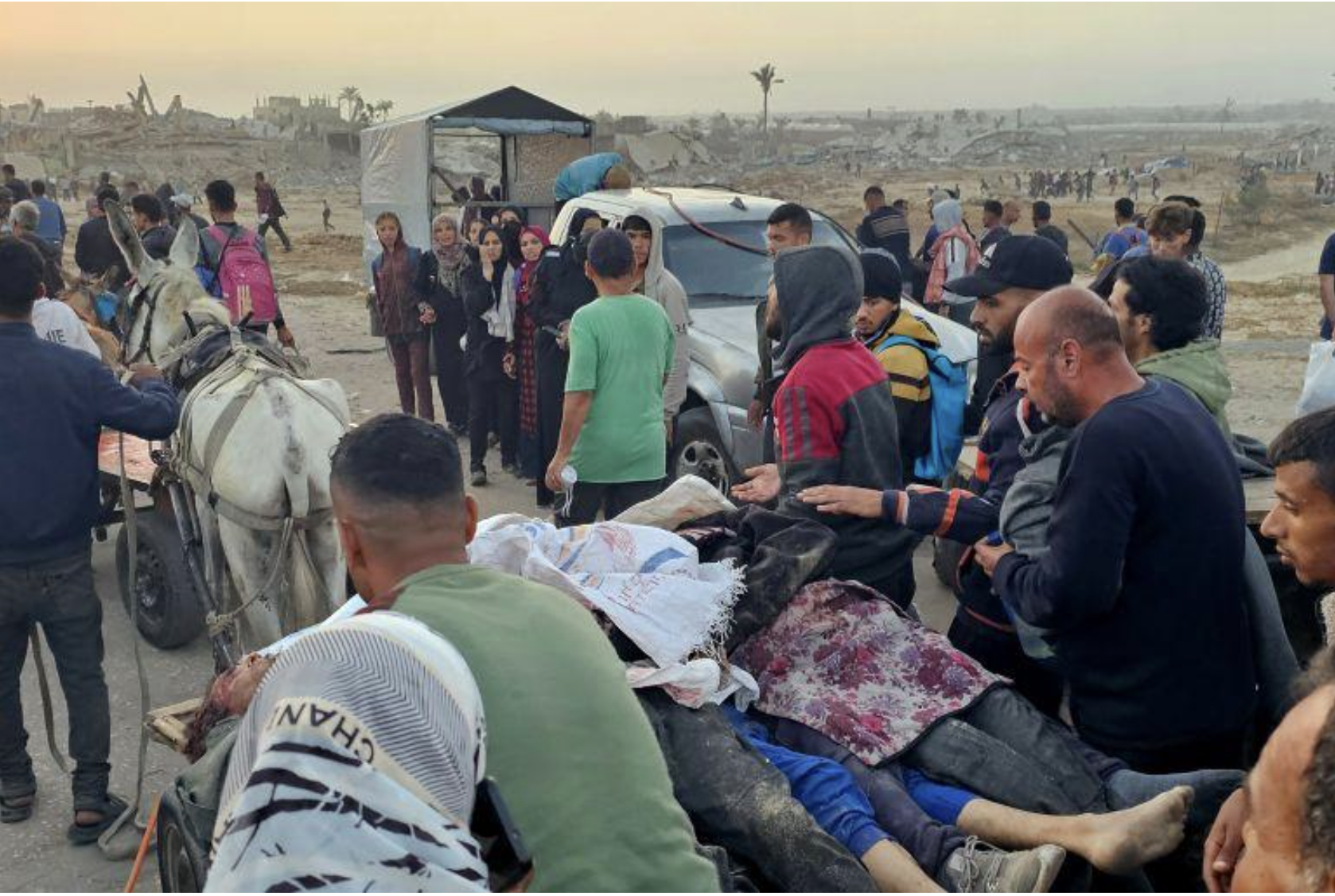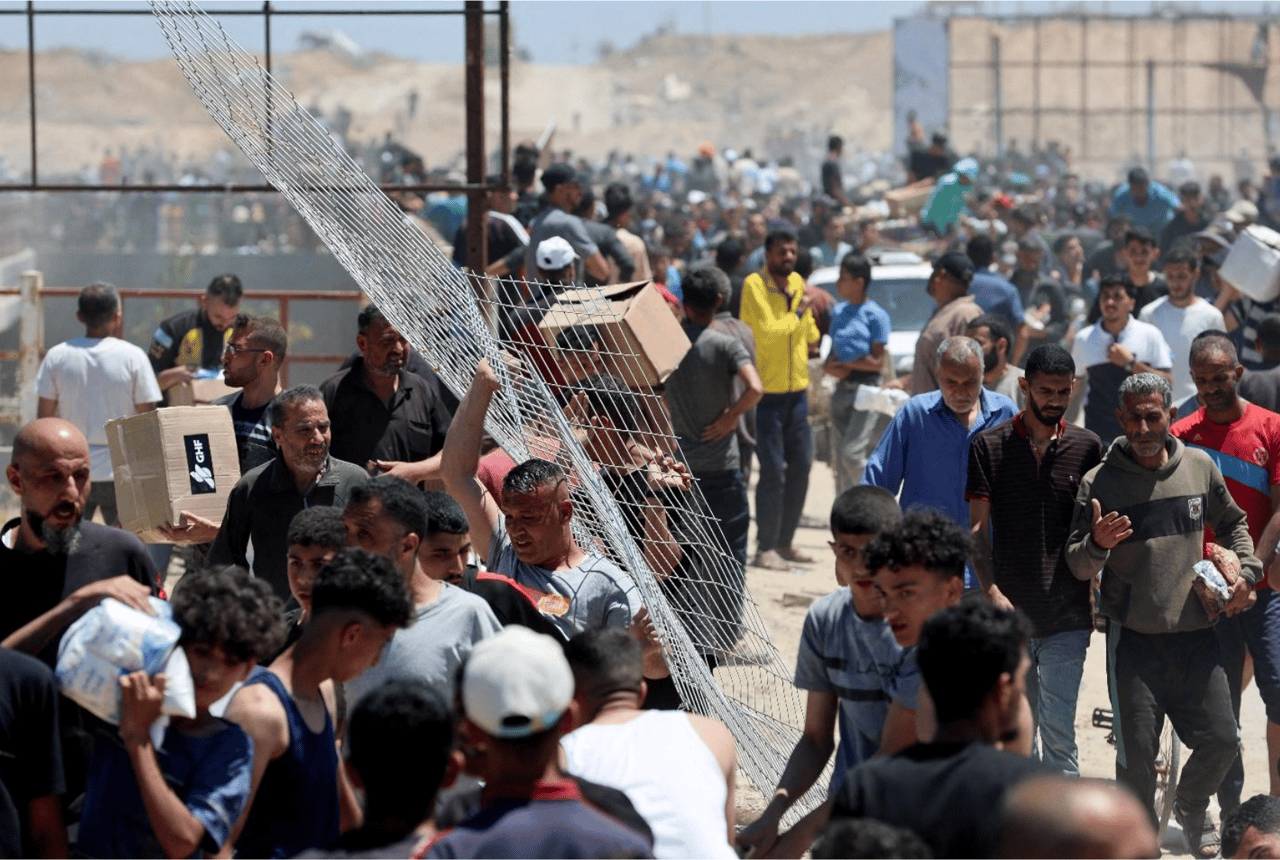Opinion
Starvation as a weapon: what Gaza’s empty plates reveal about the war
In Gaza today, hunger is not a consequence of war. It is a deliberate instrument of it.
More than 38,000 Palestinians have been killed in the past nine months.
But those numbers alone fail to capture the slow violence — the war not of bombs, but of blocked trucks and rationed calories. It is a form of warfare that turns food into leverage, and humanitarian aid into a tool of domination.
Israel’s strategy goes beyond the battlefield.
By tightly controlling the entry of food, water, and medicine into Gaza, it has transformed the basic mechanics of life into a system of punishment.
The result is not merely famine, but engineered collapse
Convoys are delayed, flour deliveries are rerouted, and fuel for bakeries and desalination plants is restricted. This is not an oversight. It is the architecture of siege, where every calorie becomes conditional.
The result is not merely famine, but engineered collapse. Children are dying not only from airstrikes, but from dehydration and malnutrition. Entire communities have been forcibly displaced into narrow pockets of southern Gaza like Rafah, only to find aid arbitrarily delayed, often for days or weeks. In some areas, only one meal a day reaches tens of thousands of people. Elsewhere, nothing arrives at all.
This system is not random. It is the product of a tightly managed policy — one that has dismantled Gaza’s civilian aid infrastructure and placed the flow of humanitarian assistance under military coordination, through intermediaries operating without transparency.
Independent Palestinian-led humanitarian networks, which once distributed aid, have been sidelined or bombed. What remains is a structure where starvation is no longer a byproduct of war, but a tactic within it.
July 20 made that clear.

58 civilians were killed while waiting for food near Zikim in the Northen side of Gaza City. There were no armed clashes in the area. Just hungry men — fathers, sons, and workers — standing in line for flour and canned food. They were gunned down in broad daylight, in what should have been a zone of protection, not execution.
This was not an isolated incident. In recent weeks, we’ve seen civilians bombed while collecting aid, shot at near checkpoints, and trampled in stampedes caused by chaotic and unsafe distributions. The food lines of Gaza have become death traps — places where the hope of nourishment is met with the threat of annihilation.
And yet, even as the suffering grows, the war continues.
Inside Israel, a dangerous split is emerging. Military officials are reportedly expressing doubts about the war’s endgame, while political leaders double down, rejecting ceasefires and proposing fantastical plans for re-engineering Gaza’s demographics. Some speak openly of “voluntary displacement,” others of humanitarian enclaves managed by foreign contractors — ideas that ignore the reality on the ground and the resilience of the Palestinian people.
But this war will not be resolved through false promises or force. It demands a shift from domination to justice.
For months, I have coordinated humanitarian operations in Gaza — not from abroad, but in the field. I’ve led convoys, negotiated local ceasefires, and pleaded with armed actors and desperate communities alike to allow safe and fair distribution of food. This work is not always successful. But when it is, it proves that a different path is possible.
That path is now taking shape.
We are piloting a field-driven humanitarian framework — one led by vetted, nonpartisan Palestinian professionals and guided by international standards of accountability. It includes local committees to manage aid, coordination mechanisms to avoid overlap, gaps, or redundant distributions, and clear principles to prevent factional capture. This is not a future vision. It is happening now, wherever the system allows space for it.
But without international recognition and support, this model cannot expand. And without a political decision to stop the war, no aid mechanism can keep up with the scale of suffering.

This is not simply a humanitarian crisis. It is a test of the international system’s credibility. The Geneva Conventions are not optional. Using hunger as a weapon is not just inhumane — it’s a war crime, no less grave than bombing shelters or targeting civilians. One kills with silence and delay, the other with noise and fire — but both are deliberate, and both are crimes.
Let us be clear: this is not about Hamas. It is about a policy that treats 2.2 million people — most of them children — as enemies by birth and burdens to be managed. It is about a siege that doesn’t distinguish between civilian and combatant, that dismantles not just buildings but the very idea of Palestinian survival.
What Gaza needs is not more press conferences. It needs a ceasefire, full humanitarian access, and the restoration of Palestinian civilian control over aid — not as a concession, but as a right.
Anything less will be remembered as complicity.
This year, we turn 25 and are looking for 2,500 new supporting members to take their stake in EU democracy. A functioning EU relies on a well-informed public – you.
Disclaimer
The views expressed in this opinion piece are the author’s, not those of EUobserverAuthor Bio
Mahmoud Shehada is a humanitarian operations leader from Gaza, working for Committed to Good, coordinating aid delivery, civilian protection and cease-fire efforts as well as leading critical aid convoys, evacuation operations and humanitarian negotiations with all parties to the conflict. This op-ed is in a personal capacity.
Related articles
Tags
Author Bio
Mahmoud Shehada is a humanitarian operations leader from Gaza, working for Committed to Good, coordinating aid delivery, civilian protection and cease-fire efforts as well as leading critical aid convoys, evacuation operations and humanitarian negotiations with all parties to the conflict. This op-ed is in a personal capacity.